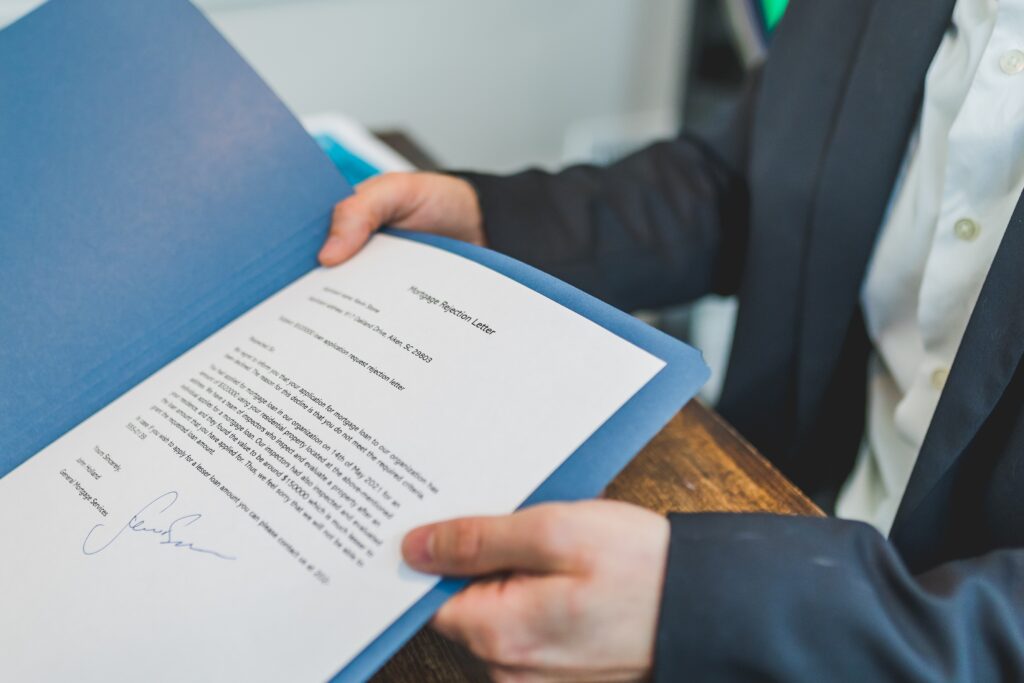When it comes to lease-purchase agreements, negotiating favorable terms can make all the difference. Whether you’re a tenant looking to become a homeowner or a landlord hoping to sell your property, understanding negotiation techniques is essential. By learning how to negotiate the option fee, monthly rent, purchase price, and other important aspects of the agreement, you can ensure that you get the best possible deal. How To Negotiate A Lease Purchase: Tips for Favorable Terms will be your guide.
To negotiate effectively, it’s important to understand the key elements of a lease-purchase agreement. This includes knowing the difference between a lease and a purchase, understanding the option fee and how it affects the purchase price, and knowing how monthly rent payments are applied to the purchase price. With this knowledge, you can start to develop strategic offer strategies and negotiation tactics that will help you achieve your goals.
In this article, we’ll explore negotiation techniques for lease-purchase agreements in depth. We’ll discuss important aspects of the agreement, offer tips for negotiating favorable terms, and provide strategic offer strategies that you can use to get the best possible deal. By the end of this article, you’ll have a clear understanding of how to negotiate a lease-purchase agreement and achieve your goals.
Key Takeaways
- Negotiating favorable terms in a lease-purchase agreement is essential to getting the best possible deal.
- Understanding the key elements of the agreement, such as the option fee and monthly rent payments, is crucial to effective negotiation.
- By developing strategic offer strategies and negotiation tactics, you can achieve your goals and ensure a successful lease-purchase agreement.
Understanding Lease Purchase Agreements

A lease-purchase agreement is a contract that allows you to lease a property with the option to purchase it at a later time. This type of agreement is also known as a rent-to-own agreement. It is a popular option for individuals who want to buy a home but are not able to secure a mortgage loan or do not have the funds for a down payment.
In a lease-purchase agreement, you will typically pay an option fee, which gives you the right to purchase the property at a later time. The option fee is usually non-refundable, but it can be applied towards the purchase price of the property if you decide to buy it.
The monthly rent in a lease-purchase agreement is usually higher than the market rent for similar properties. This is because a portion of the monthly rent is applied toward the purchase price of the property. It is important to negotiate the monthly rent to ensure that it is affordable for you.
The purchase price of the property is usually agreed upon at the beginning of the lease-purchase agreement. However, you may be able to negotiate the purchase price at a later time if the market value of the property changes.
Other important aspects of a lease-purchase agreement include the length of the lease, maintenance responsibilities, and the consequences of defaulting on the agreement. It is important to read the agreement carefully and seek legal advice if necessary.
In summary, a lease-purchase agreement can be a good option for individuals who want to buy a home but are not able to secure a mortgage loan or do not have the funds for a down payment. It is important to understand the terms of the agreement and negotiate favorable terms to ensure that it is a good deal for you.
Negotiation Techniques for Lease Purchase

Lease purchase agreements can be a great option for individuals who want to own a property but may not have the financial means to do so immediately. Negotiating favorable terms in a lease-purchase agreement is crucial to ensure that you get the best deal possible. Here are some negotiation techniques to consider when entering into a lease-purchase agreement.
Understanding the Market
Before entering into any negotiation, it is important to understand the market and the current trends. This will help you determine what is a fair price for the property and what terms are reasonable. Research the current real estate market in the area and compare the property in question to similar properties in the area to get an idea of the property’s value.
Determining the Option Fee
The option fee is the upfront payment that gives you the option to purchase the property at a later date. This fee is negotiable and can range from 3% to 7% of the purchase price. When negotiating the option fee, consider the current market conditions and the property’s value. A higher option fee may give you more negotiating power when it comes to setting the purchase price.
Setting the Monthly Rent
The monthly rent is another important aspect of a lease-purchase agreement. When negotiating the monthly rent, consider the property’s value, the current market conditions, and your budget. It is important to set a monthly rent that is affordable and reasonable.
Deciding the Purchase Price
The purchase price is the final price you will pay for the property if you choose to exercise the option to purchase. When negotiating the purchase price, consider the property’s value, the current market conditions, and any repairs or upgrades that may be needed. It is important to negotiate a fair purchase price that reflects the property’s value and any repairs or upgrades that may be needed.
Negotiating a lease-purchase agreement can be a complex process, but with these negotiation techniques, you can ensure that you get the best deal possible. Remember to do your research, consider your budget, and negotiate with confidence.
Strategic Offer Strategies
When negotiating a lease-purchase agreement, your initial offer can set the tone for the entire negotiation. That’s why it’s important to have a strategic approach to making your offer. Here are some offer strategies to keep in mind:
Initial Offer Strategy
Your initial offer should be reasonable but not too low that it offends the seller. Research the market value of the property and consider the seller’s asking price when making your offer. It’s also important to consider the current real estate market conditions and the property’s condition. If the property needs repairs or upgrades, you may want to adjust your offer accordingly.
Consider offering an option fee, which is a non-refundable fee paid to the seller that gives you the option to purchase the property within a specified period. Offering a higher option fee can make your offer more attractive to the seller.
Counter Offer Strategy
After you make your initial offer, the seller may counter with a higher price or different terms. It’s important to carefully review the counteroffer and consider your options. You can either accept the counteroffer, make a new offer, or reject the counteroffer and move on to other properties.
If you decide to make a new offer, consider adjusting the purchase price, option fee, or monthly rent. You can also negotiate other terms such as the length of the lease-purchase agreement or the amount of the down payment.
Final Offer Strategy
If you and the seller are unable to reach an agreement after multiple rounds of negotiation, it may be time to make a final offer. This offer should be your best and final offer, and you should be prepared to walk away if the seller does not accept it.
Before making your final offer, review all of the terms and conditions of the lease-purchase agreement and consider any concessions you are willing to make. Be clear and concise in your final offer and include all of the terms and conditions you are proposing.
By using these strategic offer strategies, you can negotiate favorable terms in a lease-purchase agreement and secure the property you want.
Tips for Negotiating Favorable Terms
When negotiating a lease-purchase agreement, it is important to approach the negotiation with a clear strategy in mind. Here are some tips to help you negotiate favorable terms:
Research and Preparation
Before entering into negotiations, do your research and gather as much information as possible about the property and the market. This will help you determine a fair price and give you leverage during negotiations. It is also important to review the lease-purchase agreement carefully and understand all of its terms and conditions.
Effective Communication
Clear and effective communication is key to successful negotiations. Be confident and assertive in your negotiations, but also be willing to listen to the other party’s perspective. It is important to clearly articulate your needs and priorities and to ask questions to ensure that you fully understand the other party’s position.
Patience and Persistence
Negotiations can be a lengthy process, so it is important to be patient and persistent. Don’t rush into a deal that does not meet your needs, but also be willing to compromise where necessary. Keep the lines of communication open and continue to negotiate until you reach an agreement that works for both parties.
By following these tips, you can increase your chances of negotiating favorable terms in a lease-purchase agreement. Remember to stay confident, knowledgeable, and neutral throughout the negotiation process.
Important Aspects of Lease Purchase Agreement

When negotiating a lease-purchase agreement, it is important to pay attention to several key aspects that can significantly impact the terms of the agreement. Here are some important aspects to consider:
Maintenance and Repairs
When it comes to maintenance and repairs, it is important to clearly define who is responsible for what. Typically, the landlord is responsible for major repairs, while the tenant is responsible for minor repairs. However, the lease-purchase agreement should clearly outline what constitutes a major or minor repair, and who is responsible for the cost of each.
Lease Term
The lease term is another important aspect to consider when negotiating a lease-purchase agreement. The lease term should be long enough to allow the tenant to build up equity in the property, but not so long that it becomes burdensome. Typically, a lease term of 1-3 years is sufficient.
Purchase Option
The purchase option is perhaps the most important aspect of a lease-purchase agreement. The purchase option should clearly outline the purchase price, as well as any other terms and conditions that must be met to exercise the option. It is important to negotiate a purchase price that is fair to both parties and to ensure that the option fee is reasonable.
Overall, negotiating a lease-purchase agreement can be a complex process, but by paying close attention to these important aspects, you can ensure that you are getting the best possible terms for your situation.
Conclusion
In conclusion, negotiating a lease-purchase agreement requires a strategic approach and a clear understanding of the terms involved. By following the tips and techniques outlined in this article, you can increase your chances of securing favorable terms and achieving your desired outcome.
Remember to always do your research and come prepared to negotiate. Be confident, knowledgeable, and clear in your communication, and don’t be afraid to ask for what you want. Use tables, bullet points, and other formatting tools to help convey your message and make it easier for the other party to understand.
Negotiating a lease-purchase agreement can be a complex process, but with the right approach and mindset, you can achieve your goals and secure a mutually beneficial agreement. So go forth, armed with these tips and strategies, and negotiate with confidence!
Frequently Asked Questions

How can I negotiate a lease-purchase agreement to get favorable terms?
Negotiating a lease-purchase agreement can be challenging, but there are several strategies you can use to get favorable terms. Start by doing your research on the property and the current real estate market. This will help you determine a fair price for the property and understand what terms are reasonable to negotiate. Be prepared to make a counteroffer if the initial terms proposed by the seller are not to your liking. Finally, be willing to walk away from the deal if the terms are not favorable.
What are some effective strategies for negotiating the option fee in a lease-purchase agreement?
The option fee is a non-refundable fee paid by the buyer to secure the option to purchase the property at a later date. To negotiate a favorable option fee, start by understanding the current market conditions and the seller’s motivations. A lower option fee may be more attractive to a seller who is eager to sell quickly. You can also negotiate a longer option period to give yourself more time to secure financing or complete due diligence.
What are some tips for negotiating the monthly rent in a lease-purchase agreement?
When negotiating the monthly rent in a lease-purchase agreement, consider the current market conditions and the rental rates for similar properties in the area. You can negotiate a lower monthly rent by offering a longer lease term or agreeing to pay a larger option fee upfront. You can also negotiate a rent credit, which is a portion of the monthly rent that is applied toward the purchase price of the property.
What factors should I consider when negotiating the purchase price in a lease-purchase agreement?
When negotiating the purchase price in a lease-purchase agreement, consider the current market conditions, the condition of the property, and any repairs or upgrades that may be needed. You can also negotiate a lower purchase price by pointing out any flaws or defects in the property or by offering to take on some of the repair costs yourself.
What are some important aspects to negotiate in a lease-purchase agreement?
In addition to the purchase price, there are several other important aspects to negotiate in a lease-purchase agreement. These include the option fee, monthly rent, lease term, rent credit, and any repairs or upgrades that may be needed. It’s important to carefully review the terms of the agreement and negotiate any aspects that are not favorable to you.
What are some common mistakes to avoid when negotiating a lease-purchase agreement?
One common mistake to avoid when negotiating a lease-purchase agreement is not doing enough research on the property and the current real estate market. This can lead to paying too much for the property or agreeing to unfavorable terms. Another mistake is not carefully reviewing the terms of the agreement and understanding your obligations as a buyer. Finally, it’s important to avoid making any exaggerated or false claims during the negotiation process.
I’m real estate investor, self-improvement coach, author, and publisher, Don Mayer. I would love to connect further with you to help you achieve your goals. If you are interested in learning more about lease purchasing a home, please take a look at my entry-level rent-to-own guide “The Ultimate Home-Finders Workbook”, and consider coming aboard and learning the steps to moving into a home of your own!

